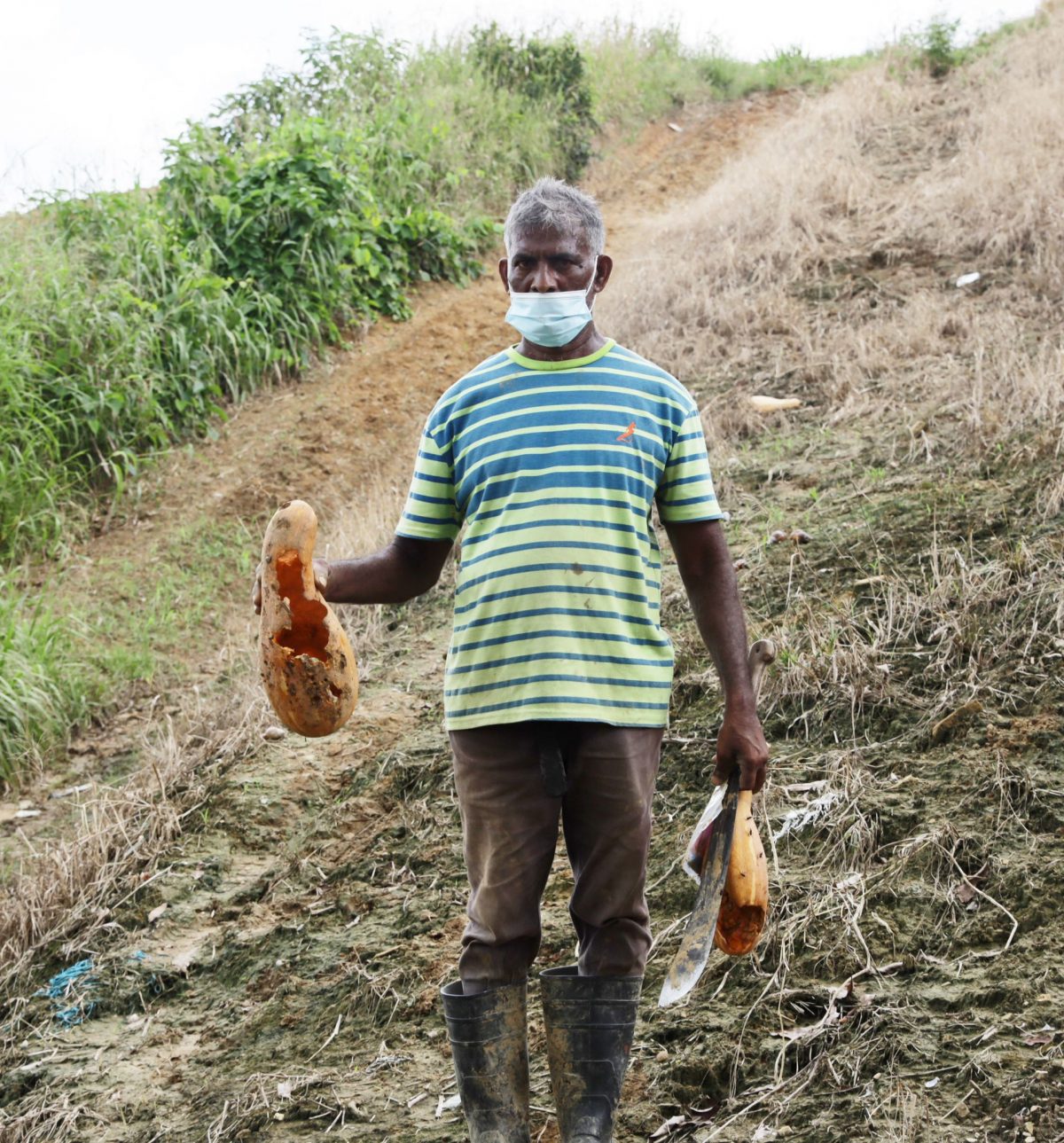(Trinidad Guardian) The threat and nuisance of the Giant African Snail (GAS) may now be a means to supplement your income, as the Ministry of Agriculture plans to introduce a bounty system offering a reward for the capture and submission of the snails to a designated site.
As part of the project Surveillance and Control of Pernicious Pest and Diseases, a task force was re-established for the monitoring and surveillance of Pernicious Pests and Diseases inclusive of bat control and GAS as well as the implementation of mitigation measures for Tuta Absoluta, Moruga Locust, and Sweet Potato Weevil.
The ministry told Guardian Media that the task force has proposed a two-pronged approach, which in the first instance will see a bounty system based on a model utilised by Barbados.
According to the ministry, it will be rolled out in County St George West and Country Caroni this month.
“As a pilot, the initiative will organise persons wanting to capture and submit snails at a designated collection site for a reward by the weight of snails collected. It will involve the participation of the public and farmers.
“This strategy carries the potential to create niche employment and supplementary income for key participating stakeholders while achieving the goal of pest control.
“To this end, the ministry is finalising a public education and awareness strategy to engage and inform the national community.” The second approach, the ministry said, will require corporate participation in the process for organising personnel, transport, and disposal in the most part in coordination with ministry officials across the country who will be the notifying agents of key districts, especially crop production areas affected.
For bat control, the ministry said that approval has been granted for the recruitment of ten veterinary agents through the UWI School of Veterinary Medicine who will work in collaboration with officers from the ministry, livestock farmers and other stakeholders.
These projects reportedly received an allocation of $3 million dollars as part of the ministry’s budget allocation for fiscal 2022/2023.
On Sunday, Debideen Manick, the head of the Felicity Food Crop Farmers Association, questioned the slow roll out of the plans. Yesterday, however, he questioned the execution of the bounty system that was announced.
The farmer said it was a good initiative, but proper planning is needed.
“It’s ok to give things a try, but remember Barbados is smaller than T&T. This snail-for-sale plan may work, but there are avenues for corruption that must not be overlooked. We don’t want to see taxpayers’ dollars mismanaged and this programme taken lightly, there must be supervision and accountability at all levels.”
The snails, he said, “must be incinerated at collection points where they are collected. There can be no long-term disposal in heaps where the snail eggs can hatch because we will be repeating this cycle.”
Manick stressed that the project must be done in a manner which will not hurt agriculture in the country.
He said public education must be given priority because several people are still disposing of dead snails in watercourses where hatch. “There is also the need for a wider baiting programme in agricultural lands where workers employed by farmers can bait and remove snails,” he added.






